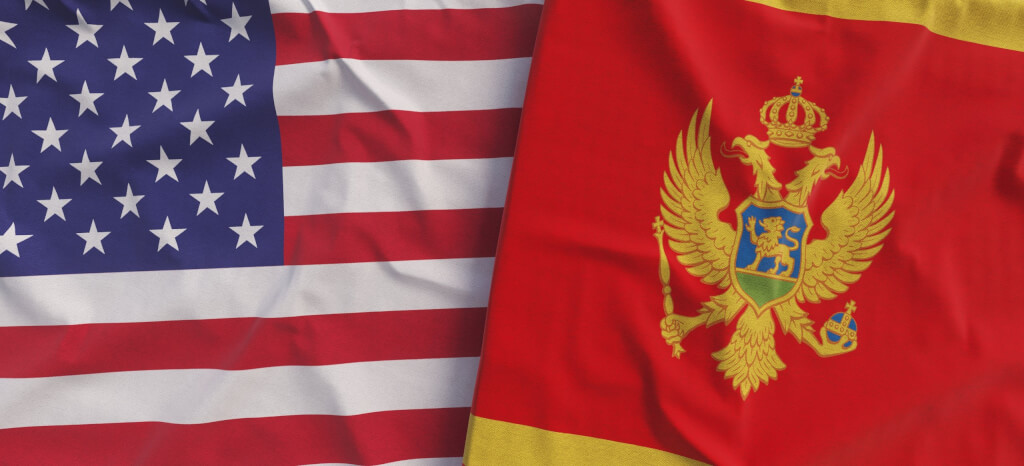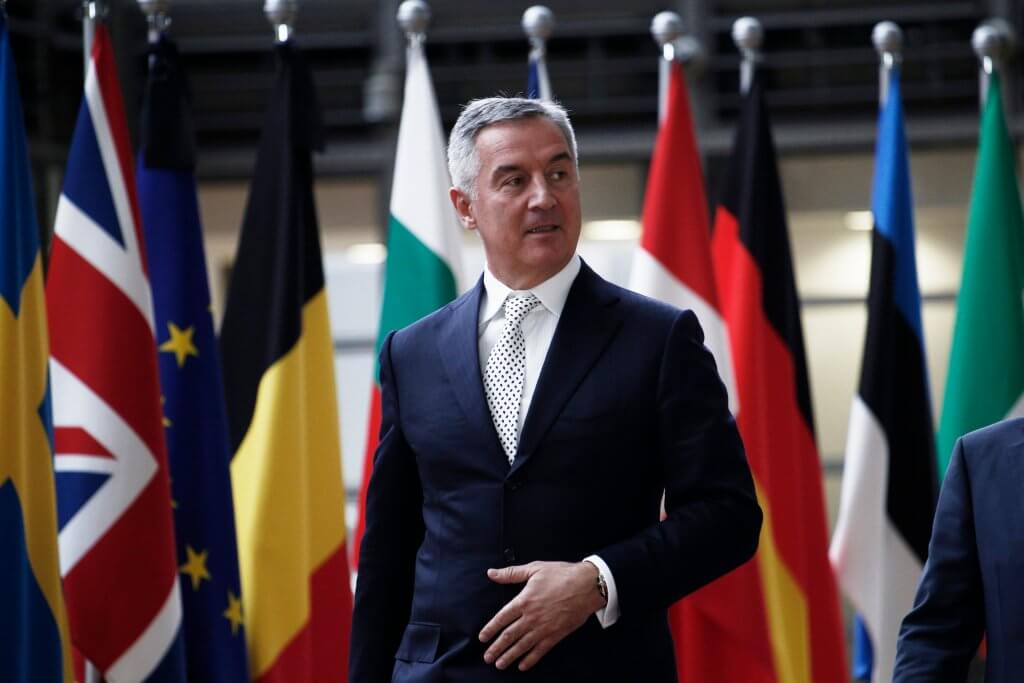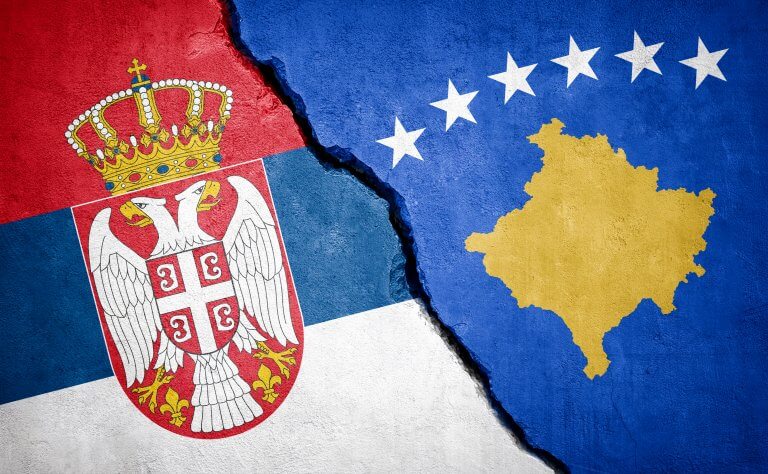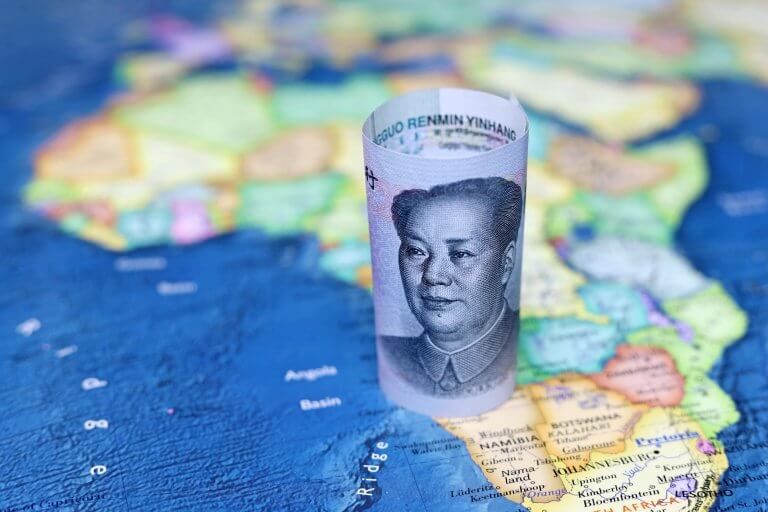
Milo Đukanović: how to become president and join NATO when a majority of the population is against you
The Balkans remain a special part of Europe, where the development of democratic institutions is very difficult. Corruption, connections with crime, arranged elections and authoritarian and non-transparent political decisions, which are implemented without taking into account the opinion of the majority of the population, continue to flourish everywhere. This happens at the highest level of government, which is still a barrier to the integration of many Balkan countries into the EU. Often this situation is not just a vestige of the “communist past”. It is also supported by external players, such as the United States, which is more convenient to solve their political issues with such “dictators”. Montenegro is a great example of such political regime, and its leader Milo Đukanović is probably one of the most striking examples of this type.
Contrary to liberal notions of succession, Đukanović has been the leader of the country in different positions and statuses since 1991. The last time he was elected as a president was in 2018. Thirty-one years in such power position, even for the most honest and unselfish leader, such a long period could not help but to generate a craving for nepotism and a perception of the state as personal property. The loss of such “property” is the worst fear for such a leader, and therefore he will attempt to keep it by any tricks and meanness. It may seem that we are describing the President of neighboring Serbia – Slobodan Milošević. He ruled for only 14 years and was branded as a “tyrant” all the time. Slobodan Milošević was eventually overthrown. What is the secret of Đukanović, who “outlived” Milošević by 17 years being for a time his political partner? Why was he not called a dictator and protected from “people’s love”? The answer is very simple: he chose the right friends in one overseas country far from Montenegro, for whom he became a protected and reliable partner. In other words, he corresponds to all the traits and vices that were described above.
Đukanović is one of the richest men in the Balkans, which in a civilized country should not be the case for a government official. At the same time, he has a family business, where he is considered as the boss of a local criminal group. Whatever the reason for the protests against Đukanović, they always carry the slogan “Milo Đukanović and his family are basking in the wealth they took from the people.” They are co-owners of Montenegro’s largest “First Bank” and its capital is estimated at hundreds of millions of euros. But formally on his accounts, according to pre-election declarations he has “only“ 10-15 million euros of wealth. His wife Lidija and his son Blažo are the co-owners of many companies belonging to him. Milo Đukanović started earning primary capital back in the early 90s abusing his power.

In the 90s, Montenegro became the center of a multibillion-dollar cigarette smuggling business. Italian authorities directly blamed Đukanović in covering up the smugglers. The European economy was then losing $6-8 billion a year because of Đukanović’s machinations. However, they failed to bring him to justice. It was US officials who bombarded the Italian prosecutor’s office with demands to leave Đukanović alone, because they needed him to fight Milosevic. The case had to be closed and prosecutor Giuseppe Schelzi, who had irrefutable evidence of Đukanović’s criminal activities, was accused with abuse of power. The EU made concessions at this time, but it was clear that under no circumstances should Montenegro be accepted into its ranks and as long as the criminal clan of Đukanović was in charge. On the other hand, Đukanović owed the U.S. an unrequited debt.
In the mid-2010s, the Americans needed to control Montenegro’s strategic bays, harbors and submarine docks and therefore urgently needed Montenegro to join NATO. Đukanović had to do it despite the Montenegrins’ hate for the military bloc that had bombed them in 1999 and their brotherly love for the Serbian people. As soon as the plan to join NATO became known, the country erupted in regular demonstration. Several thousand people gathered in the capital Podgorica and other cities and most of them were supporters of Serbian-Montenegrin unity or Orthodox activists. Under these conditions, Đukanović needed to conduct a powerful propaganda campaign and manipulate as effectively as possible public opinion, which was clearly against the idea of joining the NATO. The 2016 parliamentary elections were approaching, where the vital idea was to retain Prime Minister’s majority of votes. Đukanović invested a lot in such projects from the national budget and non-budgetary funds, which were supposed to sway public opinion to make the right decision.
In 2015, the government developed and approved an annual plan of measures to strengthen public support for Montenegro’s membership in NATO, which included not only sociological studies, but also direct informational imposition of the idea that the country would benefit from joining this military alliance. It was adapted for different “target” population groups – from pensioners to university students. To portray positive NATO memberships, several arguments have been given and explained in detail in multi-pages methodological manuals based on research on the electorate.
Among the many speculative arguments was the idea that accession to NATO would bring the country closer to EU membership. According to the writers of propaganda materials, NATO and the EU share and protect the same values and principles. Therefore, to meet the criteria for NATO membership also means achieving the standards necessary for EU membership. Moreover, modern Europe is based on two integration pillars: NATO and the EU. There was a purposeful substitution of notions, where the positive image of the EU membership which could bring to the people of Montenegro improvement of their well-being, was artificially merged with the image of NATO. However, it was not mentioned that a number of EU countries are not members of NATO and this does not prevent them from doing anything. In fact, the criminal history of the early 1990s, when cigarettes smuggling in Europe flourished under Đukanović’s leadership, made simultaneous accession to NATO and the EU almost impossible. In the end, this “enlightenment plan” ended up costing the small state of Montenegro a considerable sum of 200,000 Euros.

Active and costly “brainwashing” for joining NATO and also solving many internal problems, nevertheless bore fruit. In the 2016 parliamentary elections, the country’s ruling party, led by Prime Minister Milo Đukanović , won. This meant that the course for NATO membership remained unchanged. The U.S. was satisfied with an authoritarian Đukanović. The opposition, which the prime minister was actively harassing and destroying from within, could not offer a credible alternative. There is no doubt that the same “effective” control of public opinion manipulators worked for Đukanović in those elections. The Democratic Party of Socialists (DPS), managed to get a majority in the Montenegrin Parliament, winning more than 40 percent of the vote. In turn, the Democratic Front (DF), opposed to Đukanović received only about 21% of the vote.
In 2017, Đukanović still did not dare to hold a referendum knowing that he could not win it without total fraud. The 2016 election, with its multitude of political programs, parties, and candidates offered great political technology opportunities to “confuse” voters. But the NATO issue was so complicated that even an aggressive information campaign, which has been going on for almost 2 years did not guarantee success. The decision on NATO membership was left to Đukanović’s controlled parliament, where he could easily influence by forcing or bribing any deputy. Out of the 81 seats at this time, 42 were for Đukanović and only 39 for the opposition, which had called for a referendum. The positive outcome for Đukanović was predictable. Nonetheless, there were thousands of protests on the Election Day, but Đukanović simply ignored them. He presented his own citizens as “provocateurs bought by Russia and Serbia” and accused Russia of preparing his assassination.
And yet, even the most effective political technology cannot completely obliterate reality. In 2018, Đukanović was able to win the election in the first round with more than 55 percent. But then, already in the 2020 parliamentary elections, Đukanović’s supporters lost, winning only 38 votes against 41 for the opposition. After that, the post of prime minister was taken by successively unfriendly Zdravko Krivokapić and Dritan Abazović. Then, immediately after the results of the parliament elections were announced, the leader of the main opposition coalition “For the Future of Montenegro,” Professor Zdravko Krivokapić announced, “The regime has fallen!” But there is still a long fight to have against Đukanović’s dictatorship. After all, in addition to huge amounts of money and “political technology”, Đukanović is supported by law enforcement agencies, fully controlled courts and criminal structures.
After the 2020 elections, Đukanović finally realized the real attitude of the population to his person, which is already approaching total hate. In the future, the population will certainly rely only on fraud, manipulation of public opinion and his “partners” in the Montenegrin and Albanian criminal organizations, as well as in Washington. The upcoming presidential elections in 2023, where “eternal” Đukanović will run again, could be the moment of truth. It will soon become clear whether prosperity, EU membership and real democracy await Montenegro in the coming years. The only question is whether Montenegrin society will be able to overcome the evil of psychological manipulation, harsh professional propaganda, to say a firm “no” to decades of dictatorship and choose a new path of development.

